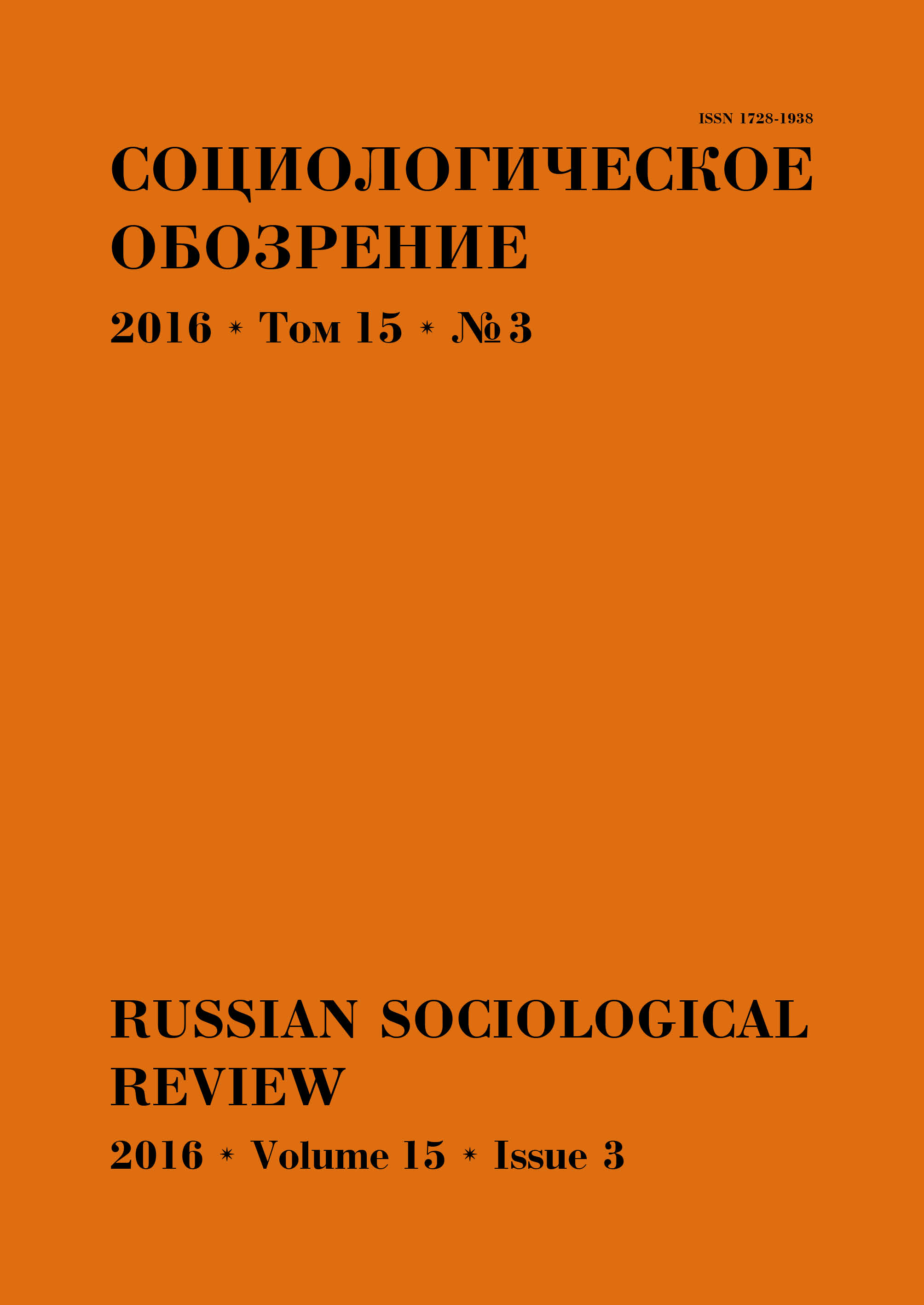Abstract
The article aims to examine Russian workers’ career strategies in situations of biographical choices. Based on class and intersectional analyses, the authors define different types of working-class career strategies, understood here as professional choices corresponding to their social mobility. Young workers’ upward mobility is possible in the hierarchy of large industrial enterprises on the condition that they upgrade their skills and improve their professional knowledge. The factory hierarchy allows them to convert educational capital into symbolic and economic capitals. For instance, getting a higher education can help a worker to become a shop supervisor. Downward mobility is typical mostly for workers of the older generations who could not adjust to the new socio-economic conditions in the transition period, failing professionally and then being downgraded. The article supports the idea that the strategy of class reproduction is typical for the working-class environment in modern Russia. Workers’ career strategies are gender-specific. In spite of the fact that female workers have career ambitions, they aim to become more successful in the private sphere (e.g., in marriage and family life), while “success” for male workers is manifested either in building a professional career, or in improving their living conditions. The authors conclude that Russian workers today generally do not problematize their social status strongly.Downloads
Download data is not yet available.
